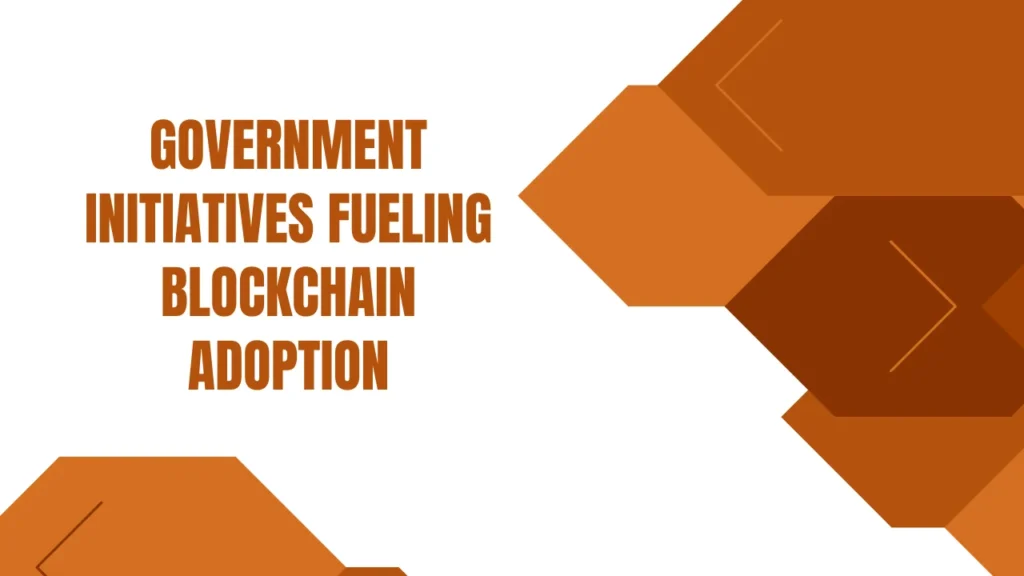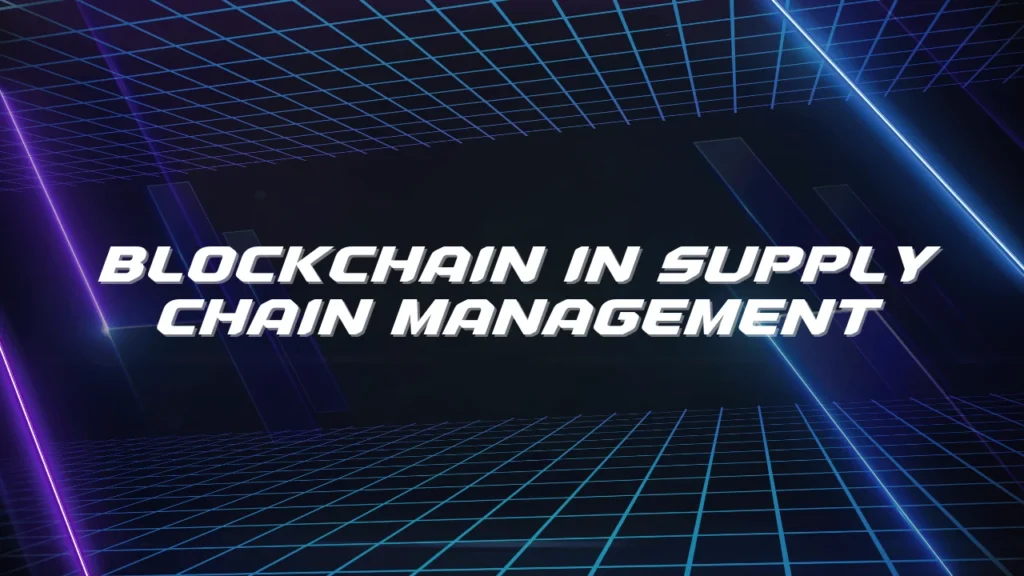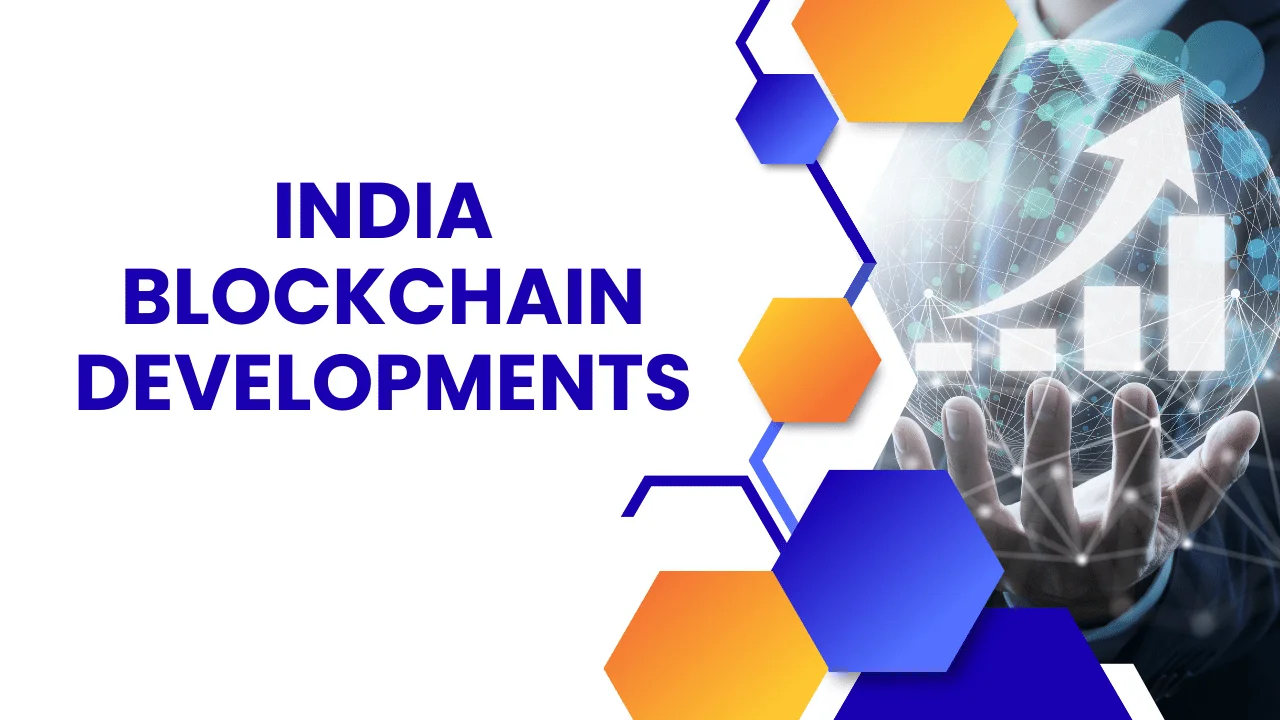India Blockchain Developments have garnered significant attention as the country takes major strides towards embracing digital innovation. With a focus on enhancing trust, efficiency, and transparency across various sectors, India is witnessing a notable transformation in its blockchain landscape. From governmental initiatives to the burgeoning ecosystem, all efforts are directed towards fostering a more blockchain-friendly environment, poised to shape the future of India’s technological landscape.
What Drives India’s Blockchain Ambition?
The government and commercial sector in India are working together to use blockchain technology and use it to solve important problems and open up new opportunities for growth. As part of its Atal Innovation Mission, the NITI Aayog has teamed up with 5ire and Network Capital to foster an entrepreneurial spirit and technical innovation in the country. Efforts like this are part of a larger movement to use blockchain technology for positive social and economic change.
Government Initiatives Fueling Blockchain Adoption

NITI Aayog’s Blockchain Endeavors
The Indian government’s public policy think tank, NITI Aayog, is essential in developing the nation’s approach to blockchain technology. Its goal, in partnership with 5ire and Network Capital, is to increase government transparency and efficiency by using blockchain technology into everyday processes. The government’s goal of a knowledge economy and society enabled by technology is demonstrated by this program.
State Governments Embrace Blockchain
The use of blockchain technology in public administration is being driven not only by federal programs, but also by state governments. The technology’s adaptability in increasing state-level governance is demonstrated by these efforts, which span from improving the delivery of public services to reducing bureaucratic processes.
Atal Innovation Mission and Blockchain Projects
Blockchain initiatives with the potential to transform several industries are receiving funding from the Indian government through the Atal Innovation Mission. In order to accomplish this goal, we must create an environment where entrepreneurs and inventors can work together to solve real-world problems using blockchain technology, thereby enhancing our country’s technological capabilities.
Digital Transformation via Blockchain
The use of blockchain technology is essential to India’s plan for digital transformation. To achieve the goal of a technologically advanced nation, blockchain technology is essential since it promotes a trustworthy, open, and effective digital infrastructure. As a result of this change affecting many parts of society, the economy, and government, blockchain is becoming an essential instrument in India’s digital transformation.
Public and Private Sector Collaborations
If the Indian government and commercial sector are serious about speeding up blockchain adoption, they must work together. The collaborative approach in investigating and implementing blockchain solutions across diverse industries, from digital identity verification to supply chain management, is exemplified by partnerships with IT heavyweights like IBM and Microsoft for blockchain services.
Backbone of India’s Blockchain Revolution
India’s Blockchain Developer Community
With over 10 million developers making contributions to the global blockchain ecosystem, India enjoys a strong blockchain developer community. This group is vital to the growth of blockchain technology in India; they are the ones that are always inventing new uses for the technology and expanding its potential.
Blockchain’s Role in Economic Development
The potential of blockchain technology to stimulate economic development has been widely acknowledged. Blockchain technology is poised to revolutionize various aspects of business, including operations, efficiency, and the way companies operate. This will undoubtedly lead to increased economic growth and worldwide competitiveness.
Innovation in Blockchain Technology
It is clear that India is dedicated to pushing the boundaries of blockchain technology with its various uses. The nation is delving into the vast possibilities of blockchain technology, from improving supply chains to finding digital identification solutions, highlighting how it can drive both technological and social improvement.
Challenges and Opportunities Ahead
The blockchain journey in India is not without its obstacles, despite the hopeful trajectory. Areas that necessitate combined efforts include overcoming regulatory obstacles, solving scaling problems, and increasing knowledge and adoption. Despite these obstacles, there are chances to innovate, work together, and create policies, which will lead to a strong blockchain ecosystem.
Expanding Blockchain’s Horizons in India
Government initiatives and digital transformation are just two parts of the blockchain story in India. More and more areas of the Indian economy and society are being impacted by this technology. More people are taking use of blockchain technology than ever before, and it’s already improving supply chain efficiency and protecting digital identities.
Blockchain in Supply Chain Management

Revolutionizing Logistics and Transparency
The revolutionary transparency and streamlined operations brought about by blockchain technology are going to shake up the Indian supply chain industry. From manufacture to distribution, blockchain guarantees the authenticity of goods by offering a tamper-proof, real-time tracking system. This eliminates the dangers of counterfeiting.
Reducing Costs and Enhancing Efficiency
Blockchain technology can cut down on paperwork and middlemen, two major expenses in traditional logistics, when applied to supply chains. The combination of this cost-effectiveness and improved operational efficiency bodes well for a supply chain model that is both simplified and inexpensive.
Improving Trust with Traceability
The built-in traceability feature of blockchain technology helps build trust with consumers by offering a clear picture of how a product is made. Both consumers and businesses benefit from this because it allows the former to demonstrate its dedication to ethics and quality.
Blockchain and Digital Identity Solutions
Securing Digital Identities
At a time when data breaches and identity theft are commonplace, blockchain provides a safe and permanent way to handle digital identities. Digital identities are protected by blockchain technology, which stores data on a decentralized network and reduces the likelihood of illegal access.
Facilitating Efficient Verification Processes
The use of blockchain technology has simplified identity verification, which has cut down on the time and effort needed for background checks. The banking and financial, educational, and employment industries, among others, greatly benefit from this efficiency because of the rigorous verification procedures they employ.
Empowering Individuals with Data Control
Blockchain technology enables users to securely and selectively share their personal information, giving them control over it. The current worldwide trend towards data privacy and information management that is user-centric is in line with this empowerment.
Blockchain’s Role in Public Services
Enhancing Government Transparency and Accountability
Using blockchain technology to improve public services has the potential to make government operations more open and accountable. Blockchain technology has the potential to greatly improve public trust in government operations and decrease instances of corruption by producing an immutable record of all official transactions and decisions.
Streamlining Public Document Issuance
Blockchain technology has the potential to revolutionize the process of issuing public documents including records, licenses, and certificates. Digitally storing these papers on a blockchain allows governments to streamline the verification and retrieval process for citizens and authorities alike while also reducing the likelihood of document fabrication.
Improving Public Service Delivery
Public services, such as healthcare and welfare programs, can benefit from blockchain technology’s ability to improve both efficiency and quality. Blockchain technology allows for more streamlined and user-friendly public service delivery by facilitating safe and efficient data sharing across different government agencies and departments.
Blockchain’s Impact on Economic and Social Development
Driving Economic Growth
Opportunities for innovation, new jobs, and increased global competitiveness abound with blockchain technology, making it a potent economic growth driver. Blockchain technology has the potential to greatly improve India’s economic vitality and stability by facilitating new business models and improving operational efficiency.
Promoting Social Inclusion
By facilitating financial inclusion, improving access to government services, and creating safe and accessible digital identities, blockchain technology has the ability to enhance social inclusion. Blockchain technology has the potential to facilitate a more inclusive society by lowering entrance barriers for underserved populations, thus closing the digital divide.
FAQs
What are the latest blockchain initiatives by the Indian government?
Blockchain technology is being used by several organizations in India to improve public services and encourage innovation. One of these organizations is NITI Aayog, which is part of the Indian government. Other organizations involved are 5ire and Network Capital.
How is blockchain technology influencing India’s digital transformation?
As a technology that improves efficiency, security, and transparency in many areas—including healthcare, government, and finance—blockchain is pivotal to India’s digital transition.
What role do state governments play in blockchain adoption?
The fact that blockchain solutions are being implemented by Indian state governments to enhance public administration is proof of how versatile the technology is in improving state-level governance and service delivery.
What are the prospects of blockchain technology in economic development?
Blockchain technology has the potential to greatly impact economic development by facilitating innovation, cutting costs, and simplifying processes across several industries.
What challenges does India face in blockchain adoption?
Barriers to broad adoption include a lack of legislative clarity, infeasibility of technology, and the digital divide, even though the blockchain ecosystem in India is expanding. Nevertheless, these obstacles also present chances for creativity and legislation.
Also Read: Fintech Blockchain: Benefits & Use Cases
Conclusion
India Blockchain Developments hold immense promise for the country’s economy, society, and technological landscape. As blockchain technology continues to evolve, India’s proactive approach in exploring its potential to enhance transparency, drive innovation, and shape a fairer digital era is commendable. With concerted efforts and a conducive environment, India stands poised to emerge as a global frontrunner in blockchain technology, signaling a transformative journey towards progress and inclusivity.

